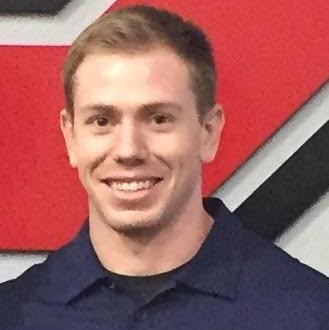Effective Communication Skills in the Gym
Coach Development | Strength & ConditioningABOUT THE AUTHOR

RYAN LEIBREICH
Ryan is the Director of strength and conditioning at Pro Performance RX In Morgantown, West Virginia. Ryan has been working in the private sector with hundreds of youth athletes for the last 5 years. He is always excited to talk training and dig deep into the Why. Never stop learning, growing and adapting. In the great words of Bruce Lee be like water. To connect further with Ryan reach out to [email protected]
// Effective Communication Skills in the Gym
Effective communication skills are the bridge connecting you to your athletes, co-workers, friends and really any person you come in contact with. This is a bridge to understand each other and build something bigger than yourself. The better, more effective and efficient we do this, the greater the outcomes. Better outcomes typically lead to more wins and more wins means everyone is happy. Without proper communication, misunderstandings will run rampant and the foundation will crumble leaving frustrated athletes, and a lot of potential left untapped.

Building the roadmap to effective communication skills
It’s more than the X’s and O’s. People may hear you, but are they listening? Here is how it really works.It all starts with creating an environment and standards to allow honest and effective communication from both parties involved. It is a two way street and it can not be forced or faked. Anyone can memorize a training plan, robotically yell and make a team work by being a drill sergeant. Now do not get me wrong, there is a time and place for this and I do have to coach this way sometimes but that is an exception, not the rule. Getting people strong is the easiest part of the job. Think of these following points daily to become more effective with how you train and talk to your athletes. Build those soft skills.

Your Title Goes Here
Your content goes here. Edit or remove this text inline or in the module Content settings. You can also style every aspect of this content in the module Design settings and even apply custom CSS to this text in the module Advanced settings.
#1 Care
You, yes you! You have to care.
Effective communication is trust. Going from good to great is growing and building that trust. If you don’t care I wouldn’t even bother reading further and would find something else besides strength and conditioning.
#2 Environment
Be Approachable
- Smile
- Have energy
- Listen
- Speak clearly
- Eye contact- don’t look away, at the ground or your phone
- Be conscious of your body language and non-verbals Example= Crossed arms and feet turned away is non approachable. To dive further into body language and non verbals, consider reading “What Every BODY is Saying” by Joe Navarro.
#3 Expectations
Have Patience.
Manage your expectations of how quickly you will develop relationships. Allow for an invitation for help. It takes time to develop relationships organically. It might be as simple as an athlete leisurely asking for your opinion on what you think or some odd roundabout version of that in their own lingo. Give them options and be clear with your own opinions.
#4 Create Situations
Create opportunities to have time to talk to your athletes By that I mean free talk. No Expectations, Genuine, Heartfelt and Honest talk. Best situations I consistency utilize is the 5 to 10 minutes during mobility/rolling out at the end of training. Don’t be afraid to go off topic and seize the moment. One question or answer can change everything. *I can’t even count anymore how many times I have stopped an entire session and gathered everyone around the whiteboard. It might have been over a certain movement, nutrition, upcoming game and psychological strategy of how to approach it. These are the moments we need.
Show that you care, that you are human.
#5 Be Relatable
It doesn’t always have to be about training. Your task is to build better athletes. Athletes are more than just performance and the best performances come from building a better person. Better people are more accountable, reliable and adaptable. Something as simple as a conversation about handling situations will build better stress resilience. Better stress resilience will allow greater training volume. Handling more volume allows for more time to get better. More work and time put in to practice typically leads to better results.
Things to remember
Believe in yourself and your athletes – Give honest advice – Leave them better than they came in- inspire – Smile and talk everyday about something other than training – Understand that nobody is perfect, we just want to be a little better everyday – Always be adaptable
Final Thoughts
How do you know you were able to effectively communicate? When you can answer yes to these following questions.
- Do athletes reach back out to you and thank you for being there, telling them they could be something and guiding them?
- Do athletes show up when things are not mandatory?
- Do they ask for life advice and come back when they go to college or become professionals?
Answer yes to all 3 questions and that’s when you know you are an effective communicator.
Are you a better coach after reading this?
More coaches and athletes than ever are reading the TrainHeroic blog, and it’s our mission to support them with useful training & coaching content. If you found this article useful, please take a moment to share it on social media, engage with the author, and link to this article on your own blog or any forums you post on.
Be Your Best,
TrainHeroic Content Team
HEROIC SOCIAL
HEROIC SOCIAL
TRAINING LAB
Access the latest articles, reviews, and case studies from the top strength and conditioning minds in the TH Training Lab

